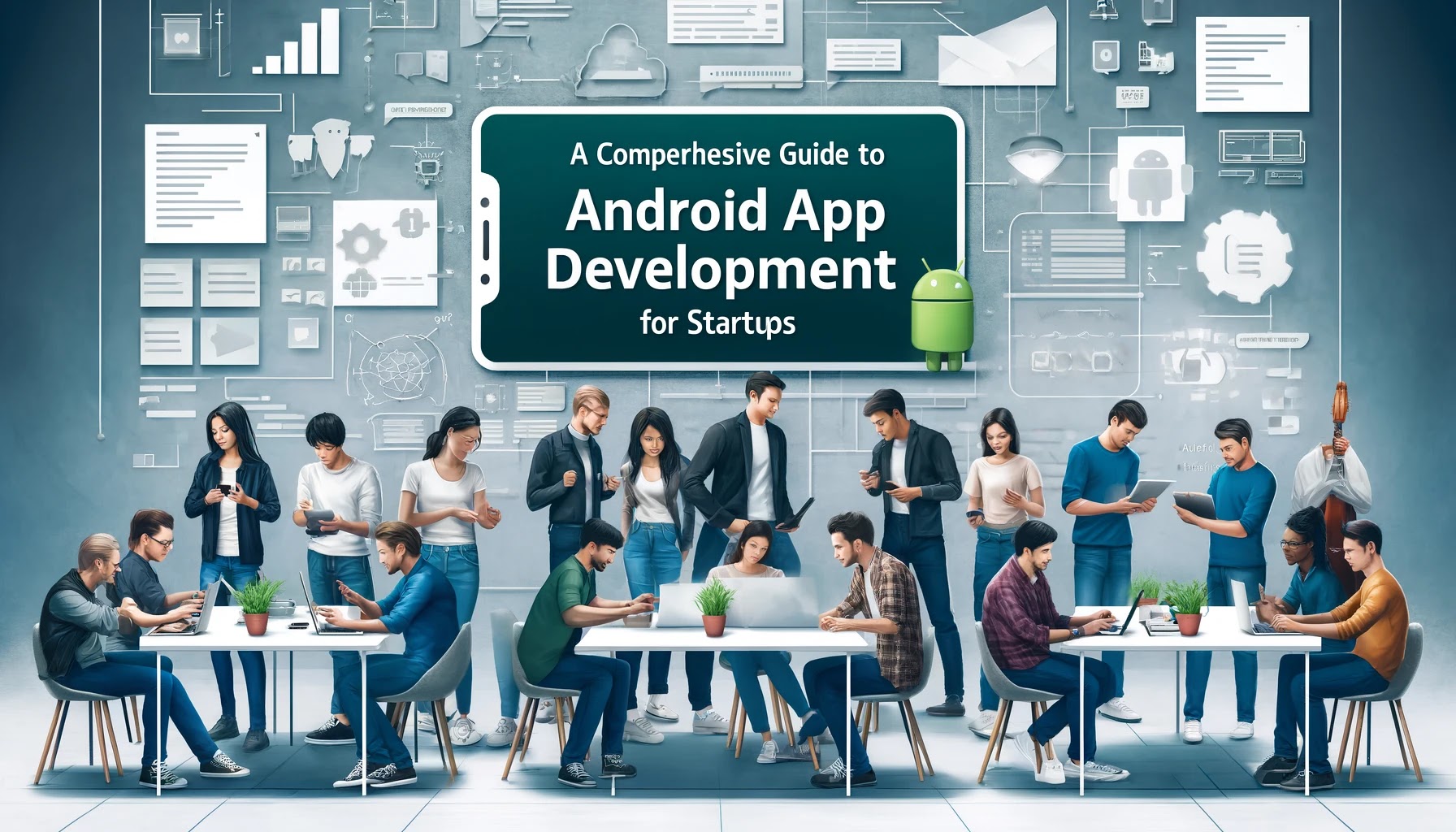A Comprehensive Guide to Android App Development for Startups
If you're a startup aiming to make a mark in the digital landscape, harnessing the power of mobile technology is crucial. In today's fast-paced world, having a strong presence on the Android platform can significantly enhance your visibility and reach among your target audience. However, diving into Android app development can be a daunting task, especially for those new to the scene. Fear not, for this comprehensive guide is here to walk you through the process, step by step.
Understanding the Importance of Android App Development for Startups
Before delving into the nitty-gritty of Android app development, it's essential to grasp why it matters for startups. Mobile apps offer a direct channel of communication with your customers, enabling you to engage with them on a more personal level. With the majority of internet users accessing content through mobile devices, having a mobile app can significantly boost your brand's visibility and accessibility.
Identifying Your Objectives and Target Audience
The first step in any app development journey is defining your objectives and identifying your target audience. What problem does your app aim to solve? Who are your target users, and what are their preferences and pain points? Conduct thorough market research to gain insights into your target demographic and tailor your app accordingly.
Choosing the Right Development Approach
When it comes to Android app development, startups have several options to consider. You can opt for native app development, which involves building separate apps for Android and iOS platforms using platform-specific languages like Java or Kotlin. Alternatively, cross-platform development frameworks like Flutter or React Native offer the flexibility to develop apps for multiple platforms using a single codebase.
Building a Minimum Viable Product (MVP)
In the startup world, time is of the essence. Rather than aiming for perfection from the get-go, focus on building a Minimum Viable Product (MVP) that addresses the core functionality of your app. An MVP allows you to test your app idea in the real world, gather user feedback, and iterate based on the insights gained.
Designing an Intuitive User Interface (UI) and User Experience (UX)
In the highly competitive app market, user experience is paramount. Invest time and resources in designing an intuitive and visually appealing user interface that aligns with your brand identity. Pay attention to usability and navigation, ensuring that users can seamlessly navigate through your app and accomplish their desired tasks with minimal friction.
Developing and Testing Your App
Once the design phase is complete, it's time to roll up your sleeves and start coding. Whether you're developing in-house or outsourcing to a development agency, ensure that the development process follows best practices and coding standards. Rigorous testing is crucial to identify and iron out any bugs or glitches before launching your app to the market.
Launching and Marketing Your App
The launch phase marks the culmination of your hard work and preparation. Develop a comprehensive marketing strategy to generate buzz around your app and attract users. Leverage social media, app store optimization (ASO), influencer marketing, and other promotional channels to reach your target audience and drive downloads.
Analyzing User Feedback and Iterating
The journey doesn't end once your app is live on the app store. Monitor user feedback and analytics closely to gain insights into user behavior and preferences. Use this data to identify areas for improvement and iterate on your app iteratively, incorporating new features and enhancements to keep your users engaged and satisfied.
Conclusion
Embarking on the journey of Android app development as a startup can be both exhilarating and challenging. By following the steps outlined in this guide and staying agile and adaptable, you can navigate the complexities of app development with confidence. Remember, Rome wasn't built in a day, and neither is a successful app. Stay patient, stay focused, and keep pushing forward.
FAQs
How much does it cost to develop an Android app for a startup?
The cost of developing an Android app for a startup can vary significantly depending on factors such as complexity, features, and development approach. It's advisable to get quotes from multiple development agencies and compare their offerings to find the best fit for your budget.
How long does it take to develop an Android app from scratch?
The timeline for developing an Android app depends on various factors, including the scope of the project, the complexity of features, and the availability of resources. On average, it can take anywhere from three to six months to develop a basic app, but more complex projects may take longer.
Do I need to have technical expertise to develop an Android app for my startup?
While having technical expertise certainly helps, it's not a prerequisite for developing an Android app. Many startups choose to outsource app development to experienced development agencies or hire skilled Android developers to bring their vision to life.
How can I monetize my Android app as a startup?
There are several monetization strategies you can explore as a startup, including in-app purchases, subscription models, advertising, and offering premium features or content. It's essential to consider your target audience and app niche when choosing the right monetization strategy for your app.
What are some common pitfalls to avoid during the Android app development process?
Some common pitfalls to avoid include inadequate market research, poor UI/UX design, scope creep, and neglecting to test your app thoroughly before launch. By staying vigilant and proactive, you can mitigate these risks and increase your chances of app success.




Comments
Post a Comment